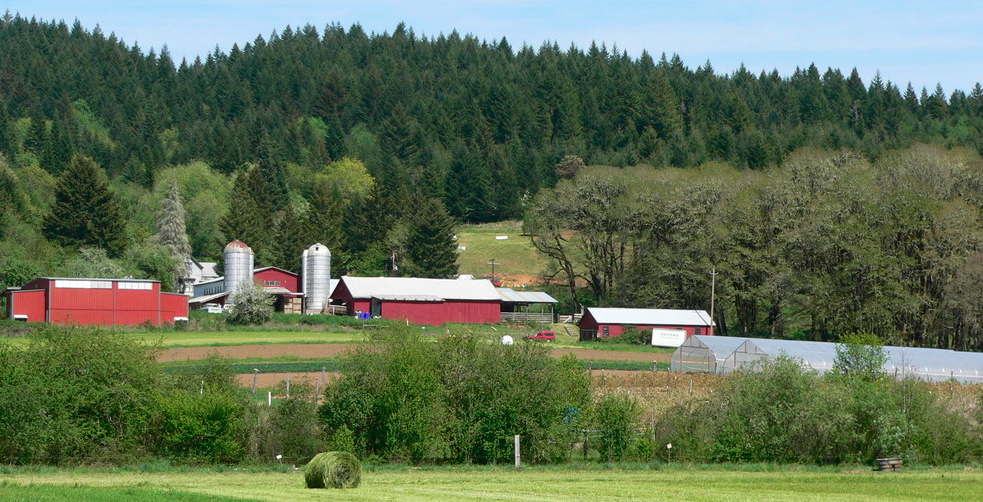https://www.holganix.com/blog/how-soil-microbes-improve-fertilizer-efficiency
https://www.holganix.com/blog/how-soil-microbes-improve-fertilizer-efficiency
By Kaitlyn Ersek on Feb 10, 2022 10:15:00 AM
Did you know, last year the U.S. spent $18.6B (20.5M tons) on fertilizer? Over 60 percent of that fertilizer was used on corn, soybean, wheat, and cotton.
Yet scientific literature states that over 50% of fertilizer is lost because it becomes tied in the soil, washes off, erodes, or becomes volatilized in the air. That loss equates to $9.3 B USD.
“The waste is outrageous. And the thing is, soil microbes improve fertilizer efficiency,” explains Dave Stark, P.hD., and President of Agriculture at Holganix, LLC. “Biologically healthy soils create greater corn yields per unit of nitrogen input.”
In this blog, we discuss how soil microbes improve fertilizer efficiency. Click the link to skip to the topic of your choosing, or continue scrolling to read the full report.
- Higher nitrogen efficiency with higher microbial populations
- What about phosphorus and potassium?
- Accessing nutrients via crop residue breakdown
- A note on diversity and microbial inoculants
- Video interview with Dave Stark, Ph.D. on soil microbes and fertilizer efficiency
Higher Nitrogen Efficiency With Higher Microbial Populations
A meta-study from Nature Research Scientific Reports reviewed 230 published studies on how microbes interact with fertilizer. According to that study, only 36-42% of the current year’s applied nitrogen goes to the crop (corn, rice, and small grains).
In fact, soil organic nitrogen turnover (the nitrogen that is mineralized or cycled by microbes) contributes more than the nitrogen we apply to the crop.
And, since microbes increase the soil’s ability to mineralize or cycle nitrogen, the presence of high microbial populations leads to better nitrogen efficiency.
“Using a microbial and using farming techniques that foster beneficial microbial populations, increases your farm’s ability to use fertilizer efficiency and can reduce the need for fertilizer,” explains Dave.
“This is so critical to farming today. Fertilizer prices are high. Farmers need an edge to reduce costs and increase their crop productivity.”
What About Phosphorus And Potassium?

“The top six inches of soil is abundant in phosphorus and potassium, but extraordinarily little of that phosphorus and potassium is bioavailable,” states Dave. In other words, phosphorus and potassium become bound in the soil and the plant cannot access them.
Yet, while the plant cannot access these bound nutrients, soil microbes can! Microbes break down phosphorus, potassium, and other micronutrients and feed them back into the plant root.
This is just another way microbes increase fertilizer efficiency.
Accessing Nutrients Via Crop Residue Breakdown
In addition to solubilizing and mineralizing nutrients, microbes also make nutrients like nitrogen, phosphorus, and potassium available by breaking down crop residue. Crop residue is filled with valuable nutrients. As an example, corn stover holds about 17 lbs of nitrogen, 4 lbs of phosphorus, and 34 lbs of potassium per ton.
Having an abundant source of degrading soil microbes allows farmers to use no-till farming techniques to access these nutrients.
A Note On Diversity And Using Microbial Inoculants
Microbial inoculants are soil amendments containing microbial species. Most microbial inoculants contain just a handful of bacterial species, while others like, Holganix Bio 800+, contain a large diversity of soil microbe species including bacteria, fungi, and protists.
Choosing to use a microbial product that contains only a few species of plant growth-promoting bacteria or nutrient solubilizing bacteria might boost root mass or improve the availability of a single nutrient, such as phosphorus. However, products with just a few species of microbes, can’t do everything. Instead, they focus on a narrow piece of the puzzle. For example, a bacteria-only product won’t cycle nitrogen efficiently since bacteria require a lot of nitrogen to grow. Microbes that eat bacteria, namely fungi and protists, require much less nitrogen and cycle it back to the crop.
With Holganix Bio 800+, growers do not have to choose; over 800 species of bacteria, fungi and protists are present including a broad range of plant growth promoters and nutrient solubilizers. In fact, the microbes in Bio 800+ consume fertilizer and keep it in the root zone, all while cycling nutrients back to the plant so more nutrients go to the crop instead of being lost in the environment.
Holganix Bio 800+ has consistently given farmers a 2-10x ROI through increased crop yields and improved fertilizer efficiency. Bio 800+ is a valuable tool that allows growers to back off inputs knowing more of the inputs put down will actually feed the crop.
When it comes to the turf and ornamental industry, Holganix Bio 800+ has consistently allowed turf managers to reduce their fertilizer use by 50% without sacrificing results.
Want To Learn More About How Soil Microbes Can Increase Fertilizer Efficiency?
Watch the webinar recording below for a conversation with Holganix President of Agriculture, Dave Stark, Ph.D. on
- How microbes increase nutrient uptake and availability (including phosphorus)
- The role of soil microbes in soil health and crop performance
- Insights and data from university studies, and Holganix studies, on how microbes increase fertilizer efficiency

